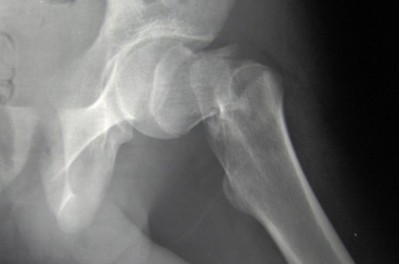From joints to guts: RCT supports glucosamine’s gut health benefits

Data published in Nutrients indicated that three weeks of supplementation with three grams per day of Glucosamine Hydrochloride (TSI’s non‐shellfish derived GlucosaGreen product) also led to significantly decreases in the excretion of individual and total branched‐chain amino acids in the participants, indicating a retention of amino acids linked to muscle health.
The supplements induced changes in the microbiota and metabolome, and in contrast to classic prebiotics fiber, which stimulate the growth of bifidobacteria, glucosamine had no significant effects on fecal bifidobacteria content, according to researchers from Lindenwood University, the University of California, Davis, Increnovo LLC, Jamieson Wellness Inc., and Dr. Theo’s, Inc.
The study was funded by TSI Group, Ltd.
Beyond joint health
Glucosamine, along with chondroitin sulfate, is a major ingredient in the joint health category, with studies such as the $14 million Glucosamine/chondroitin Arthritis Intervention Trial (GAIT), sponsored by the National Institute of Health, reporting that the combination “significantly decreased” knee pain for people suffering from moderate-to-severe osteoarthritis (New England Journal of Medicine, 2006, Vol. 354, pp. 795-808).
However, the market for both ingredients has been in decline in the US, as ingredients such as turmeric/curcumin and collagen gain market share. According to NBJ, joint health supplements grew at a measly 2% in 2018, but the overall joint health market was still worth an estimate $2 billion.
The new study suggests that glucosamine may offer formulators an option in the booming digestive health market, or for muscle health, according to Ralf Jaeger, PhD, managing member of Increnovo LLC, who assisted in the running of trial.
Dr Jaeger told NutraIngredients-USA that this is “the first double-blind, placebo-controlled, crossover clinical trial investigating the potential health benefits of glucosamine supplementation, and first ever study to look at non-shellfish derived glucosamine.
“One crucial new finding of our study was that Glucosamine was able to increase fecal nitrogen retention, especially the retention of amino acids linked to muscle health (e.g. total BCAAs, and individual amino acids such as leucine, isoleucine and valine),” added Dr Jaeger. “This could lead to future research and the use of the glucosamine in muscle health, such as age-related muscle loss (sarcopenia), or other incidences in which muscle protein breakdown is increased (e.g. calorie restricted diets, hospitalization, immobilization).”
Study details
The trial included six health men and five healthy women randomly assigned to complete two supplementation protocols of either GlucosaGreen or placebo, each lasting three weeks. A two-week washout period separated the protocols. Participants completed bowel habit and gastrointestinal symptoms questionnaires, and also provided stool samples from the start and end of each intervention period.
Results indicated that glucosamine supplementation was associated with statistically significant reductions in stomach bloating, and trended towards reducing constipation and hard stools, said the researchers.
Fecal analysis showed that phylogenetic diversity was significantly reduced following the GlucosaGreen supplementation period.
“The reduction in bacterial alpha‐diversity (a metric of the total bacterial contents in the fecal samples) with the inclusion of glucosamine in the diet is consistent with previous reports where both glucosamine and chondroitin or glucosamine and green lipped muscle extract were consumed,” explained the authors, led by Jessica Moon.
“However, our other findings differed from these studies including a lack of an effect on bacterial beta‐diversity and differences between the affected taxa compared with those prior reports. Specifically, we found significant reductions in the proportions of Pseudomonadaceae, Peptococcaceae, and Bacillaceae in the fecal contents when glucosamine was consumed compared to baseline samples.
“Conversely, despite reductions in the proportions of these taxa, there was no single bacterial genus or family that was enriched in the present study. These findings may be due to glucosamine‐mediated inhibition of certain bacterial taxa and the concurrent (non‐specific) enrichment of multiple bacterial species able to metabolize this compound.”
The researchers said future studies should aim to elucidate optimal doses, if the results extend to other population groups, and include more subjects with longer intervention periods.
Source: Nutrients
2021, 13(7), 2180; doi: 10.3390/nu13072180
“Impact of Glucosamine Supplementation on Gut Health”
Authors: J.M. Moon et al.















